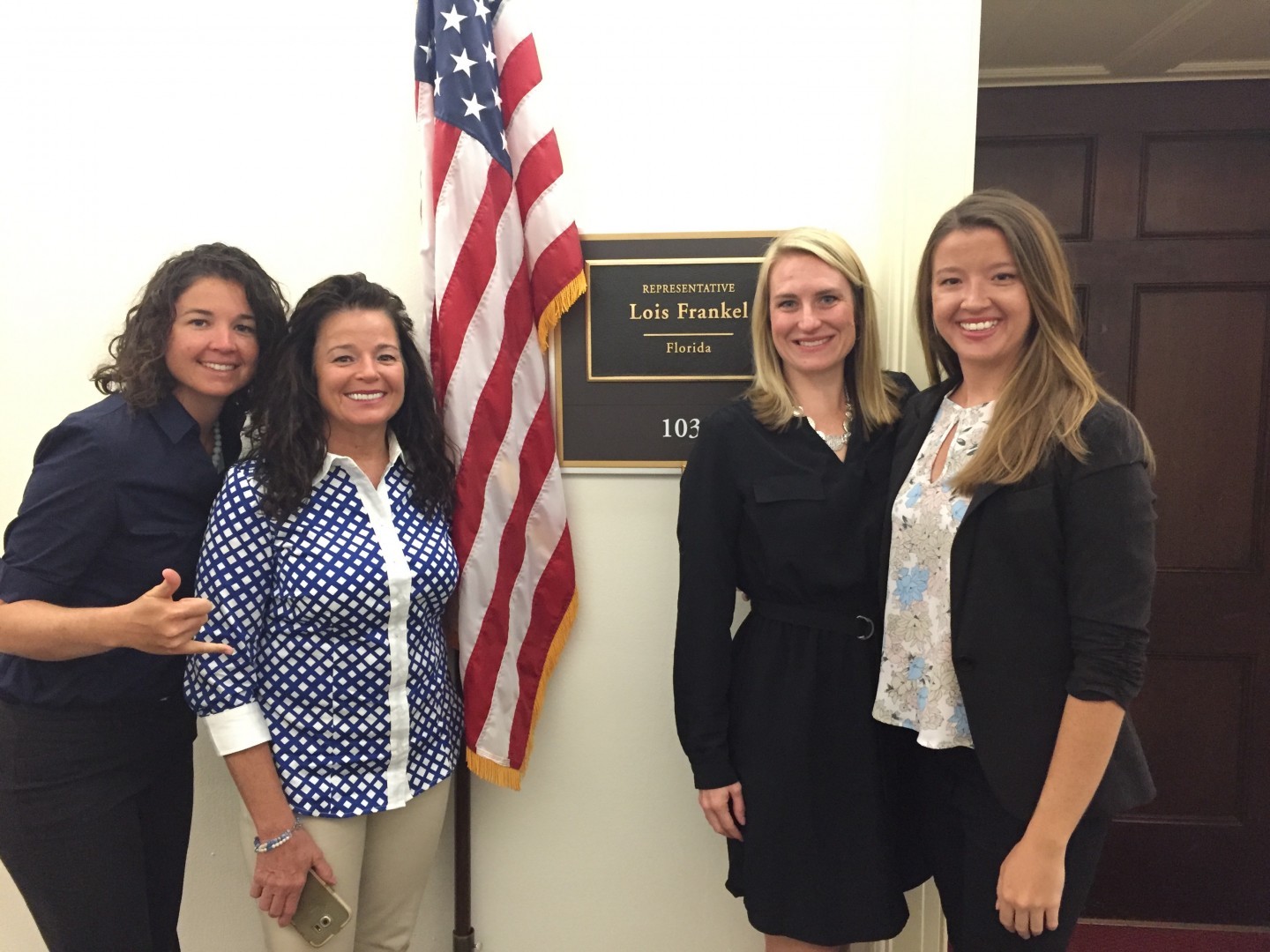
Last week, key Surfrider Foundation staff and volunteers participated in the Blue Vision Summit in Washington, D.C. to discuss the main threats facing our ocean and also participate in healthy ocean visits with Senators and Representatives on Capitol Hill. The first day of the Summit was stacked with conference plenaries and panels at the George Washington University in dowtown D.C. An inspirational talk by world-renowned marine explorer Sylvia Earle started off the day, with a message of hope for anyone working on ocean conservation today because we have more information and technology at our fingertips than ever before. We simply need to acknowledge and utilize that information in our ocean and coastal management. Following Sylvia Earle was a great panel featuring Surfrider CEO Chad Nelsen alongside Ralph Nader, John Racanelli, and Farah Obaidullah and moderated by Ayana Johnson of Ocean Collectiv. This panel discussed ocean strategy in today's political era and how to reach our conservation goals in the short term and long term, including the cultivation and activation of a new generation of ocean leaders. The summit participants were then able to attend dozens of panels discussing ocean conservation issues, ranging from ocean recreation and conservation planning - to plastic bag ban preemption - to the effects of sunblock on reefs. The day was full of opportunities to learn from marine experts and network with other experts and advocates alike.
On May 10th, over 150 ocean advocates, including those from Surfrider, went to Capitol Hill to speak about important ocean conservation issues and related ocean legislation. The focus of the healthy ocean visits covered three major topics of (1) Coastal Resiliency in the face of Climate Change, (2) Offshore Oil Drilling concerns, and (3) Plastic Pollution choking our oceans. Surfrider Foundation had 8 staff members participate in this event, which happens once every two years, along with at least 10 volunteers. We led delegations visiting Congresspersons from the Northeast, New York, New Jersey, Florida, Southern California, Oregon, and Washington. The entire Hill Day was responsible for over 130 healthy ocean visits to Senators and Representatives, educating elected officials and staff on the most pressing threats to the ocean, advocating that they join the Senate or House Ocean Caucus and vote for ocean conservation measures, and, perhaps most importantly, telling our stories from the Congresspersons' home districts about why our coasts are so valuable and the livelihood at stake.
Finally, on the third day of the Blue Vision Summit, Pew Charitable Trusts hosted the Ocean of Tomorrow symposium and there was a press conference for “No Offshore Drilling!” across from the Departent of Interior. In sum, this biennial event made great bounds for ocean conservation because it connected ocean experts, policy makers, and advocates and offered a resounding voice for the ocean in the nation's capital, in a time when it is most needed.
Surfrider Foundation is able to join in this collective effort of ocean enthusiasts and engage in biennial Hill visits all while staying within the bounds of Surfrider's legislative lobbying limit. As a 501(c)(3) organization, Surfrider may engage in a limited amount of legislative lobbying at the federal, state, and local levels. Surfrider has made what's known as a “501(h)” election, under the Internal Revenue Code, and therefore a statutory formula sets its lobbying expenditure limit. (26 U.S.C. § 4911(c)(2)). To ensure compliance, Surfrider diligently keeps records of all staff time spent influencing legislation (the value of which constitutes a lobbying expenditure), including for example, staff's time spent preparing for and visiting legislators on Capitol Hill, as well as staff and chapters' expenditures to engage in this great work, such as the planes, trains, and auto costs to get to there! Surfrider engages in these activities, and other legislative advocacy work around the country - including efforts on local beach access ordinances, marine pollution prevention bills, and ensuring funding for critical federal programs like BEACH Act grants - all while remaining well within our lobbying limitation, so as to not be subject to tax implications and to maintain our 501(c)(3) designation. For more information on Surfrider's compliance with lobbying and other 501(c)(3)-applicable laws, as we advance our mission of protecting our ocean, waves, and beaches, you may visit here.
